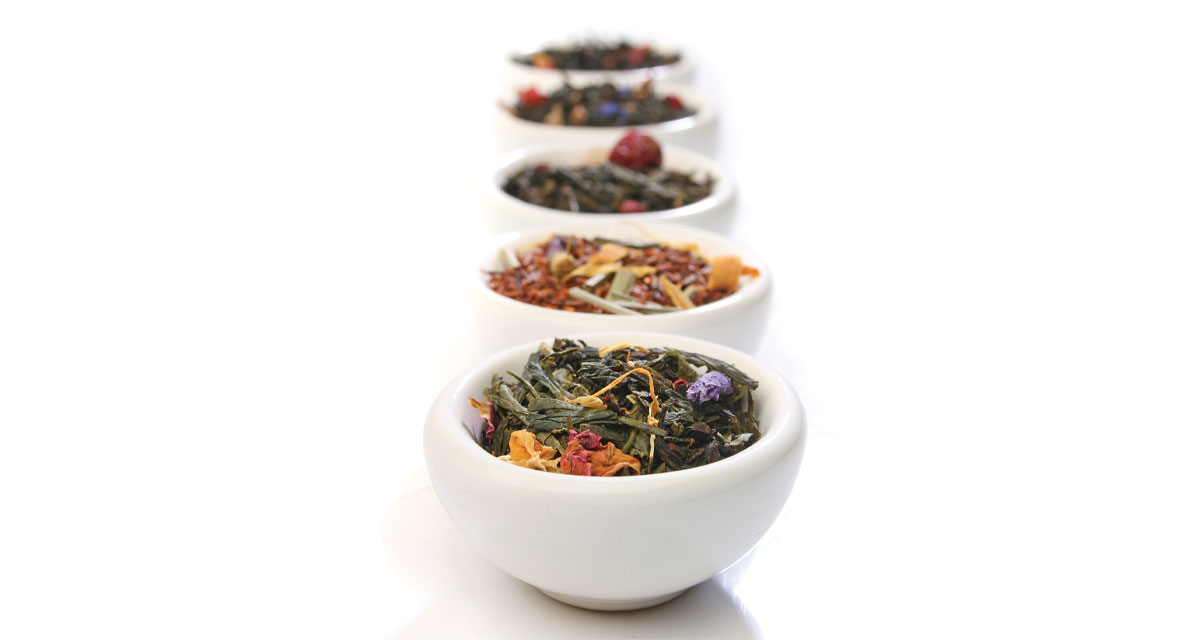If you are in love with the aroma and sweetness to fruity tastes of tea, the next step is obvious; it’s time to consider a new hobby within your favorite, comforting pastime: tea drinking. It begins with a course registered as a self-study online, or as participation in person at a local class. Next, invite family and friends who are as passionate about tea as you are! Most workshops are geared toward beginners looking to create botanical blends for personal use.
Sourcing Herbs for Tea
Educated in the art of combining blends, you’ll be eager to find a quality source of herbs, whether it’s from your garden, at a local farm, or online. Foraging for medicinal herbs is a unique experience, exposing you to learning more about native local plants. While you will not be able to find the quantities needed, most likely, you’ll purchase herbs from a reputable source. Therefore, research the growers’ practices and certifications, such as whether they have “Certified Organic” or “Certified Naturally Grown” label.
A few tips to consider:
- Most dried herbs have a shelf life of about one year when stored properly in a cool, dark location; the timeline extends when herbs are refrigerated or placed in a freezer. Therefore, while buying in bulk offers savings, it’s wise to purchase the amount to be used within one year. Consider sharing the total cost with friends to engage in the endeavor of learning about herbal teas together!
- Be prepared to transfer dried herbs into an airtight glass jar that minimizes oxygen, moisture, and light exposure. Most aerial parts of plants (flowers and leaves) have a shelf life of one year, while roots, bark, and berries can remain potent for up to two years.
Beginning Steps
Tea workshops are an exposure to the delights of learning and experimentation. Sitting in a class will turn on a light, offering the possibilities of combinations and the science of balancing unique and familiar blends. With a notebook and pencil ready, start with eight herbs: chamomile, cinnamon, ginger, lemon balm, licorice root, orange, peppermint, and Tulsi (Holy Basil.) Then, jot down the flavor, aroma, color, and taste. Considering the nuances, Chamomile, for instance, only needs a few minutes to steep before the taste becomes bitter; peppermint, on the other hand, can steep longer than five minutes without the flavor changing. Understanding their medicinal values and actions (cooling, warming, or spicy) will help elevate your desire to craft tasty and effective herbal tea blends.
Equipment
Minimal equipment is required. You’ll need bowls, funnels, spoons, measuring cups, a digital kitchen scale, a spice grinder, a dust mask to prevent sneezing, a teakettle, a strainer, mugs, and glass canning jars with sealable lids. Additionally, a notebook and index cards will undoubtedly help build memory and further your academic knowledge in the study of tea.
The rules:
- Most teas comprise one to two tablespoons of dry herb material per eight fluid ounces of water.
- Teas, including woody herbs, such as roots, barks, or seeds, often use one to two teaspoons of herbs within eight fluid ounces of water.
- The recipe is doubled and sometimes tripled when using fresh herbs, since they consume more space.
- Create a large batch in a quart jar, 32 ounces, using a half-cup of dried herbs. Be forewarned: to minimize microbial growth, consume the tea within three days.
- Refrigerated tea does not require heating. If preferred, use a saucepan on low heat until it reaches a suitable drinking temperature.
Building Vocabulary
The study of tea will involve researching the answers to many questions. For example, what exactly is ancient tea? And what does full-bodied mean? Is there a difference between oolong and black tea? Knowing the basic vocabulary means you will never feel like a stranger to the tea world. Index cards will certainly help you differentiate between “nervine relaxant” and “emmenagogue,” among other words.
Buying Reference Books
Rosemary Gladstar is a well-known herbalist, a published author, and a voice in the herbal community. Her books, for instance, Medicinal Herbs: A Beginner’s Guide, are easy to read and well organized. Starting with Rosemary may give you a start to branch out to other authors.
Sign-up today, or present this extraordinary gift for family members or great friends. One class will transform the act of drinking tea into an exhilarating experience!























